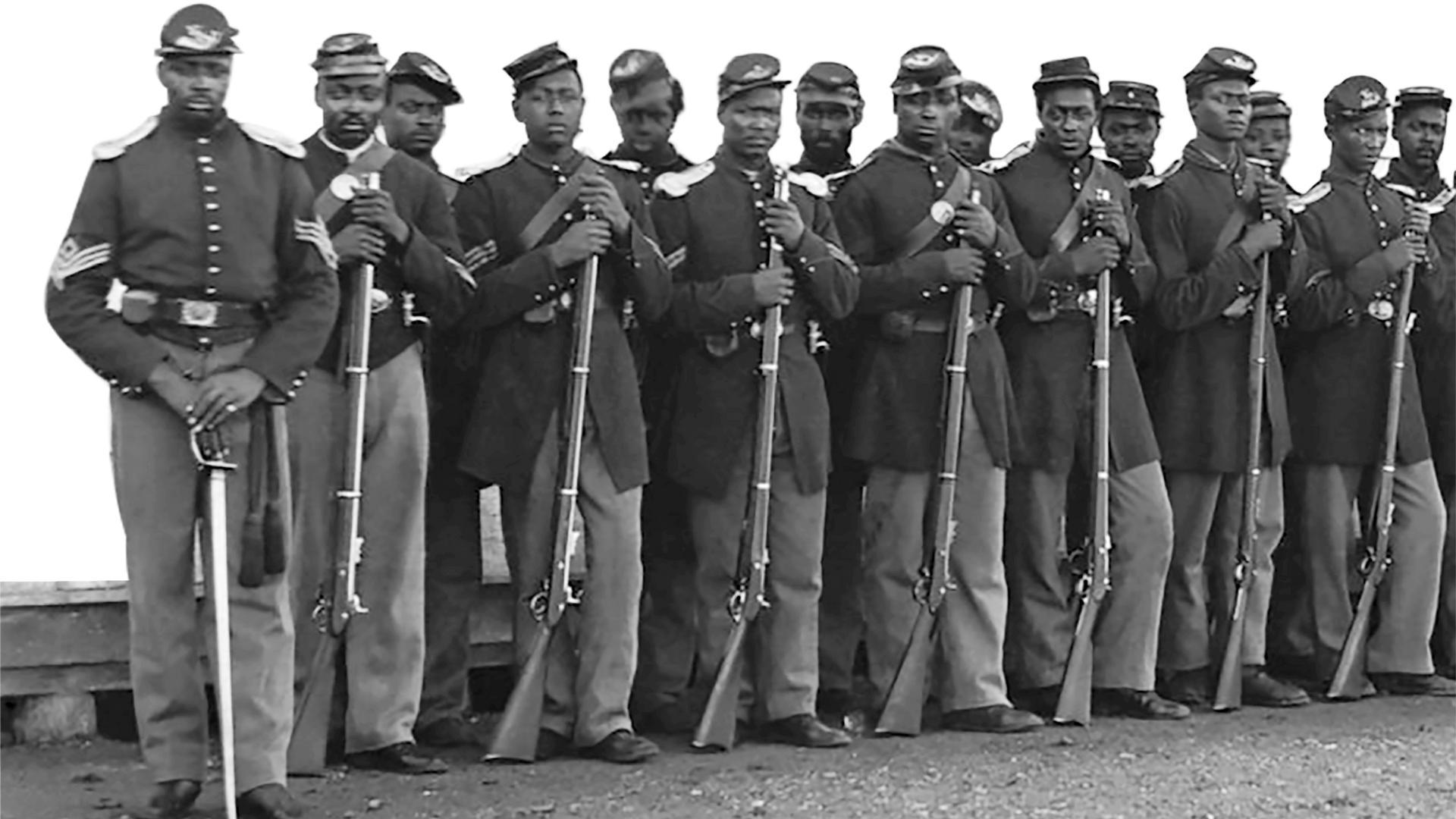
By Land or By Sea


Civil War
1861—1865
By Land or By Sea
In the Civil War (1861–1865), the war fought for their right to freedom, African American men and women gave their all. Despite the reluctance of some white officers, nearly 200,000 Black Americans served in the United States Armed Forces.
ShowHide Transcript
In the war fought for their right to freedom, African American men and women gave their all. Despite the reluctance of some white officers, nearly 200,000 Black Americans served in the United States Armed Forces during the Civil War.
One such freedom fighter was the five-foot-tall Harriet Tubman. Tubman traveled to Union-occupied South Carolina early in the war, in 1862. She was already well-known for freeing over 150 slaves through the Underground Railroad before the war.
But as a woman, Tubman could not enlist. Instead, she served as a leader, scout, and saboteur. She organized African American resistance, led raids to destroy plantations, provided valuable intelligence to Union commanders—and trained others to do the same.
In June 1863, Tubman became the first American woman of any race to command an armed assault. On the Combahee River in South Carolina, she led three gunboats and over 150 African American Union soldiers on a night raid. This single Union mission freed some 750 slaves and drove Confederate forces from the area.
Many Black men who were freed by the Union Army in actions like these went on to enlist and serve.
Another individual made headlines for his extraordinary service to the Union. Beaufort-born Robert Smalls was born a slave and worked as a pilot, guiding boats through harbors and along the coastline.
In the spring of 1862, Smalls hatched a bold plan to claim his freedom: he would sail the Planter, the Confederate ship he piloted, into Union lines.
With trusted crewmen and family members smuggled aboard in the dead of night, Smalls steered the Planter past several forts, giving correct signals that enabled the ship to pass without suspicion.
Robert Smalls delivered the Confederate ship and its cargo of guns and ammunition to the Union Navy—and his family and friends to freedom, all at the age of 23. He would serve on and lead his own gunboats during the war.
Afterwards, Smalls advocated for civil rights, helped fund efforts to educate Freedpeople, and served as a state and U.S. Representative.
Tubman, who also spent a lifetime in service and fighting for civil rights, died in 1913. She was buried with full military honors.
Across the country, African American soldiers fought on the front lines of the Civil War. They fought for freedom, for equality, and for the promise of America.
“My race needs no special defense, for the past history of them in this country proves them the equal of any people anywhere. All they need is an equal chance in the battle of life.” –Robert Smalls
Across the country, African American soldiers fought on the front lines of the Civil War. They fought for freedom, for equality, and for the promise of America.